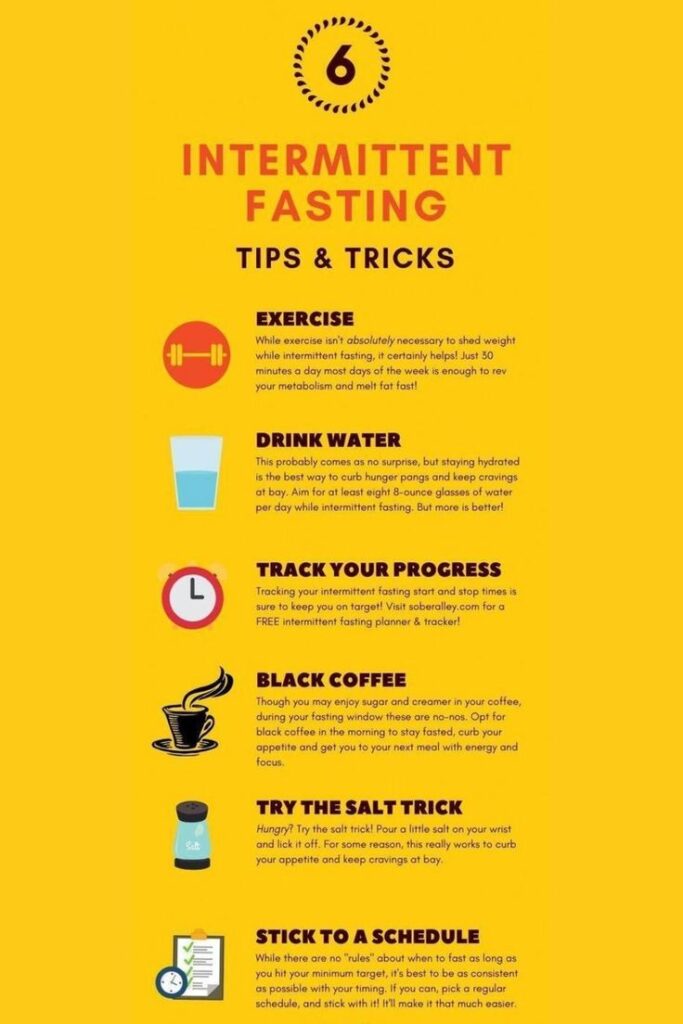Intermittent fasting has gained immense popularity in recent years as a powerful tool for weight loss, improved metabolic health, and overall well-being. This dietary approach is not just another trend; it has deep historical roots and is supported by a growing body of scientific research. Whether you’re curious about how intermittent fasting works or looking to start your own fasting journey, this comprehensive guide will provide you with the essential information you need.
What is Intermittent Fasting?
Intermittent fasting (IF) is an eating pattern that alternates between periods of eating and fasting. Unlike traditional diets, IF does not focus on what you eat but rather when you eat. The goal is to create a schedule that includes extended periods without food intake, allowing your body to enter a fasted state.

Common Methods of Intermittent Fasting
There are several popular methods of intermittent fasting, each with its own unique approach:
- The 16/8 Method: This involves fasting for 16 hours each day and restricting your eating window to 8 hours. For example, you might eat between noon and 8 PM and fast from 8 PM to noon the next day.
- The 5:2 Diet: With this method, you eat normally for five days of the week and consume only 500-600 calories on the remaining two days.
- Eat-Stop-Eat: This involves fasting for a full 24 hours once or twice a week. For example, you might fast from dinner one day to dinner the next day.
- Alternate-Day Fasting: As the name suggests, you alternate between fasting and eating days. On fasting days, some variations allow for a very low-calorie intake (about 500 calories).
- The Warrior Diet: This method involves eating small amounts of raw fruits and vegetables during the day and having one large meal at night, typically within a 4-hour window.
How Intermittent Fasting Works
Intermittent fasting works by tapping into the body’s natural metabolic processes. Here’s how:
- Insulin Sensitivity: During fasting periods, insulin levels drop, facilitating fat burning and making stored body fat more accessible.
- Human Growth Hormone (HGH): Fasting can increase HGH levels, which aids in fat loss and muscle gain.
- Cellular Repair: Fasting triggers autophagy, a process where cells remove damaged components, improving cellular health.
- Gene Expression: Fasting can influence genes related to longevity and disease protection.
Health Benefits of Intermittent Fasting
Intermittent fasting offers a range of health benefits, backed by scientific research:
- Weight Loss and Fat Loss: By reducing calorie intake and boosting metabolism, IF can help you lose weight and belly fat.
- Improved Insulin Sensitivity: IF can lower blood sugar levels and reduce the risk of type 2 diabetes.
- Heart Health: IF can improve various risk factors, including blood pressure, cholesterol levels, and inflammatory markers.
- Brain Health: IF may enhance brain function, support neurogenesis, and protect against neurodegenerative diseases.
- Longevity: Animal studies suggest that IF can extend lifespan and improve longevity.

Starting Your Intermittent Fasting Journey
If you’re considering intermittent fasting, here are some practical tips to help you get started:
- Choose a Method: Pick an intermittent fasting method that fits your lifestyle and preferences.
- Start Gradually: Ease into fasting by gradually increasing your fasting window over time.
- Stay Hydrated: Drink plenty of water during fasting periods to stay hydrated and curb hunger.
- Eat Nutrient-Dense Foods: Focus on whole, unprocessed foods during eating periods to maximize nutritional intake.
- Listen to Your Body: Pay attention to how your body responds and adjust your fasting schedule as needed.
Common Challenges and How to Overcome Them
Intermittent fasting can be challenging, especially when you’re just starting out. Here are some common issues and tips to overcome them:
- Hunger: Hunger is common during the initial stages. Drinking water, tea, or coffee can help manage hunger pangs.
- Social Situations: Navigating social events while fasting can be tricky. Plan your fasting schedule around social commitments whenever possible.
- Energy Levels: You might experience low energy levels initially. Ensure you’re eating balanced meals with sufficient nutrients during eating periods.
- Cravings: Cravings for certain foods can be strong. Mindful eating and finding healthy alternatives can help manage cravings.

Who Should Avoid Intermittent Fasting?
While intermittent fasting has many benefits, it’s not suitable for everyone. People who should avoid IF include:
- Pregnant or breastfeeding women: Nutritional needs are higher during these periods.
- Individuals with eating disorders: Fasting can exacerbate disordered eating patterns.
- People with certain medical conditions: Those with diabetes, low blood pressure, or other health issues should consult a healthcare provider before starting IF.
- Underweight individuals: Fasting can further reduce body weight, which may not be healthy for underweight individuals.
The Human Connection: Personal Stories and Testimonials
Intermittent fasting is more than just a dietary pattern; it’s a lifestyle that has transformed lives. Many people have shared their personal journeys and success stories, highlighting the profound impact IF has had on their health and well-being.
For instance, Sarah, a 35-year-old working mother, found that intermittent fasting helped her manage her weight and improve her energy levels without the stress of traditional dieting. John, a 50-year-old businessman, discovered that IF not only helped him shed stubborn pounds but also enhanced his mental clarity and productivity.
These stories are a testament to the transformative power of intermittent fasting. While everyone’s experience is unique, the common thread is the positive impact IF can have on physical and mental health.
In overview
Fasting intermittently is a versatile and successful way to enhance your well-being and health. IF has several advantages for anybody trying to improve metabolic health, decrease weight, or just live a better lifestyle. You may decide whether to adopt intermittent fasting into your life by being aware of the many approaches, its advantages, and difficulties.
Always remember that consistency and paying attention to your body are essential for successful intermittent fasting. Begin with a strategy that works for your lifestyle, make little changes along the way, and relish the path to improved health.

Pingback: Discover the Ultimate Dune Popcorn Bucket: A Must-Have for Movie Enthusiasts! -